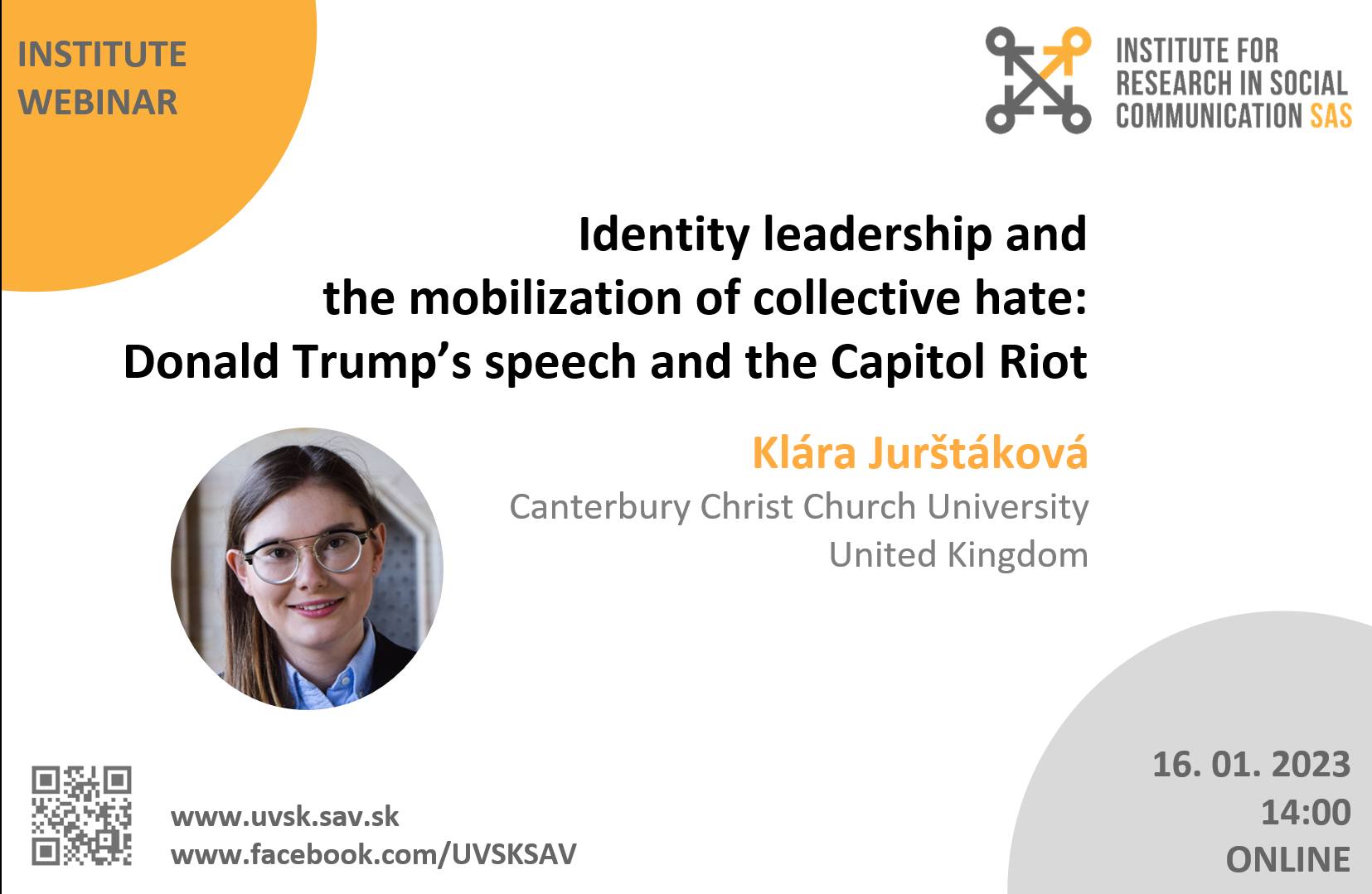Srdečne Vás pozývame na ústavný seminár s názvom „Identity leadership and the mobilization of collective hate: Donald Trump’s speech and the Capitol Riot“, na ktorom privítame hostku žijúcu v zahraničí. Klára Jurštáková predstaví výsledky štúdie skúmajúcej príhovor Donalda Trumpa v januári 2021 po zvolení Prezidenta J. Bidena za účelom porozumenia role vodcovstva založeného na identite a mobilizácie v rámci kolektívnej nenávisti. Seminár bude v anglickom jazyku. Prosíme Vás o sprostredkovanie tejto informácie aj vašim kolegom a kolegyniam.
Seminár sa uskutoční online formou. V prípade záujmu o účasť, prosíme vyplňte jednoduchý formulár: https://forms.gle/HFVGoztheubG8yJPA
Najneskôr v deň konania semináru Vám budú zaslané prístupové údaje k Zoom stretnutiu. Maximálny počet účastníkov a účastníčok mimo ÚVSK SAV je 50 ľudí.
Udalosť na Facebooku: https://fb.me/e/2bFRjWqXw
Tešíme sa na stretnutie!
Identity leadership and the mobilization of collective hate: Donald Trump’s speech and the Capitol Riot
Klára Jurštáková, Canterbury Christ Church University, United Kingdom
Pondelok 16.01. 2023, 14:00 – 15:30 CET, online
On January 6th, supporters of Donald Trump stormed the United States Capitol in Washington, D.C. in advance of President-elect Joe Biden’s victory being formalized. The storming was preceded by a “Save America” rally during which Trump discredited the election results and urged his followers to act. The speech allows for an examination of processes of identity leadership, particularly in relation to the ways in which leaders rhetorically construct social groups and the relations between them, providing the context within which engaged followership characterized by collective hate can develop. We present a theoretically driven thematic analysis of Donald Trump’s speech that took place before the storming of the Capitol on January 6th, 2021. Our analysis extends the five-step social identity model of the development of collective hate. First, the speech featured core ingroup and outgroup categories, namely an ingroup (Americans) that was positioned against enemy outgroups (e.g., media, Democrats, ‘weak’ Republicans). Second, ingroup and outgroup categories were moralized in that ingroups were constructed as patriotic/virtuous whereas outgroups were portrayed as dishonest/thieving. Third, intergroup relations were positioned as antagonistic, with outgroups seeking to exterminate a victimized ingroup. Fourth, Trump empowered the ingroup by highlighting its victimized yet agentic status, highlighting his followers’ obligation to act. Our analysis extends previous findings by highlighting how leaders mobilize followers to engage in hateful actions.







